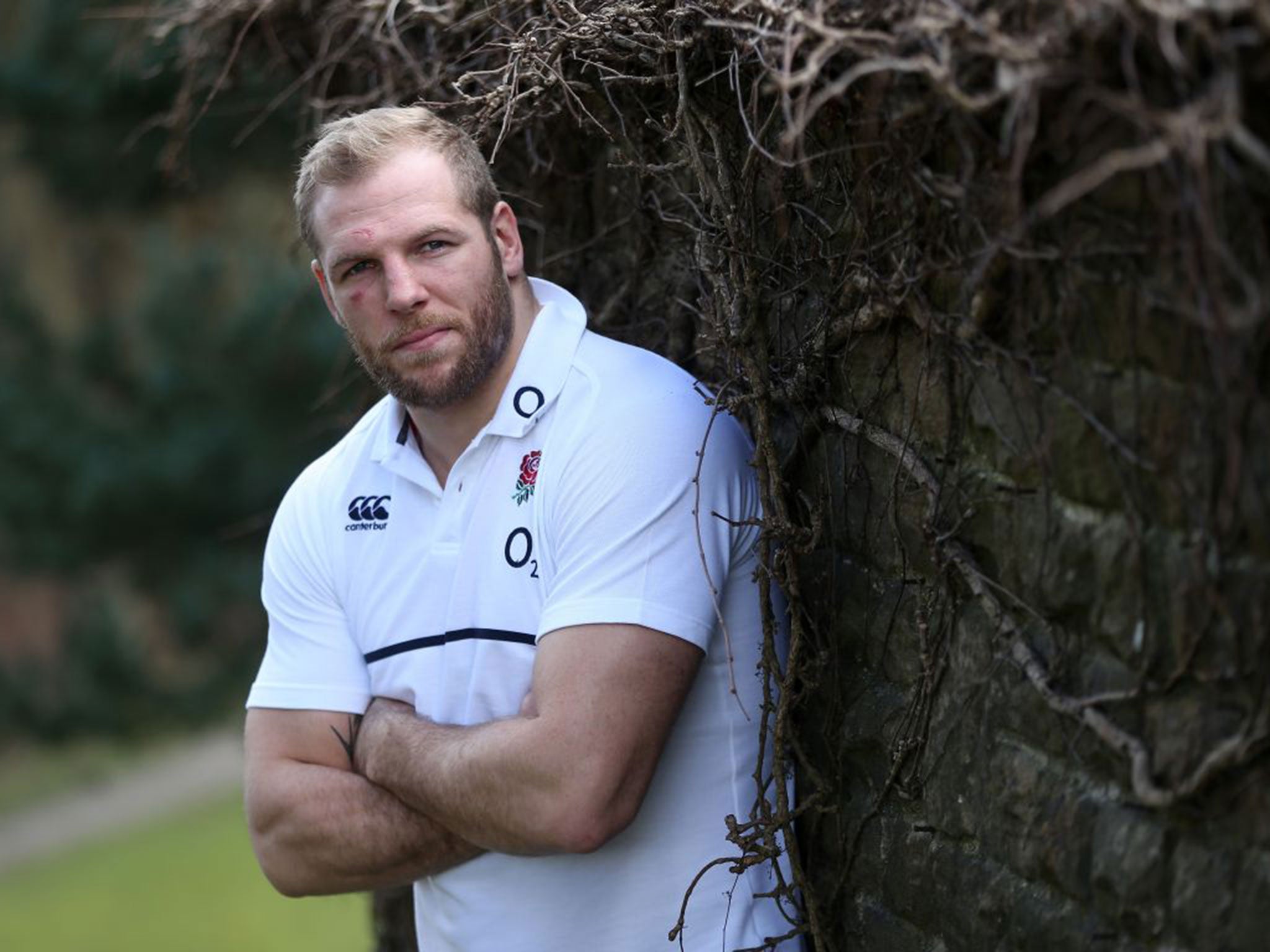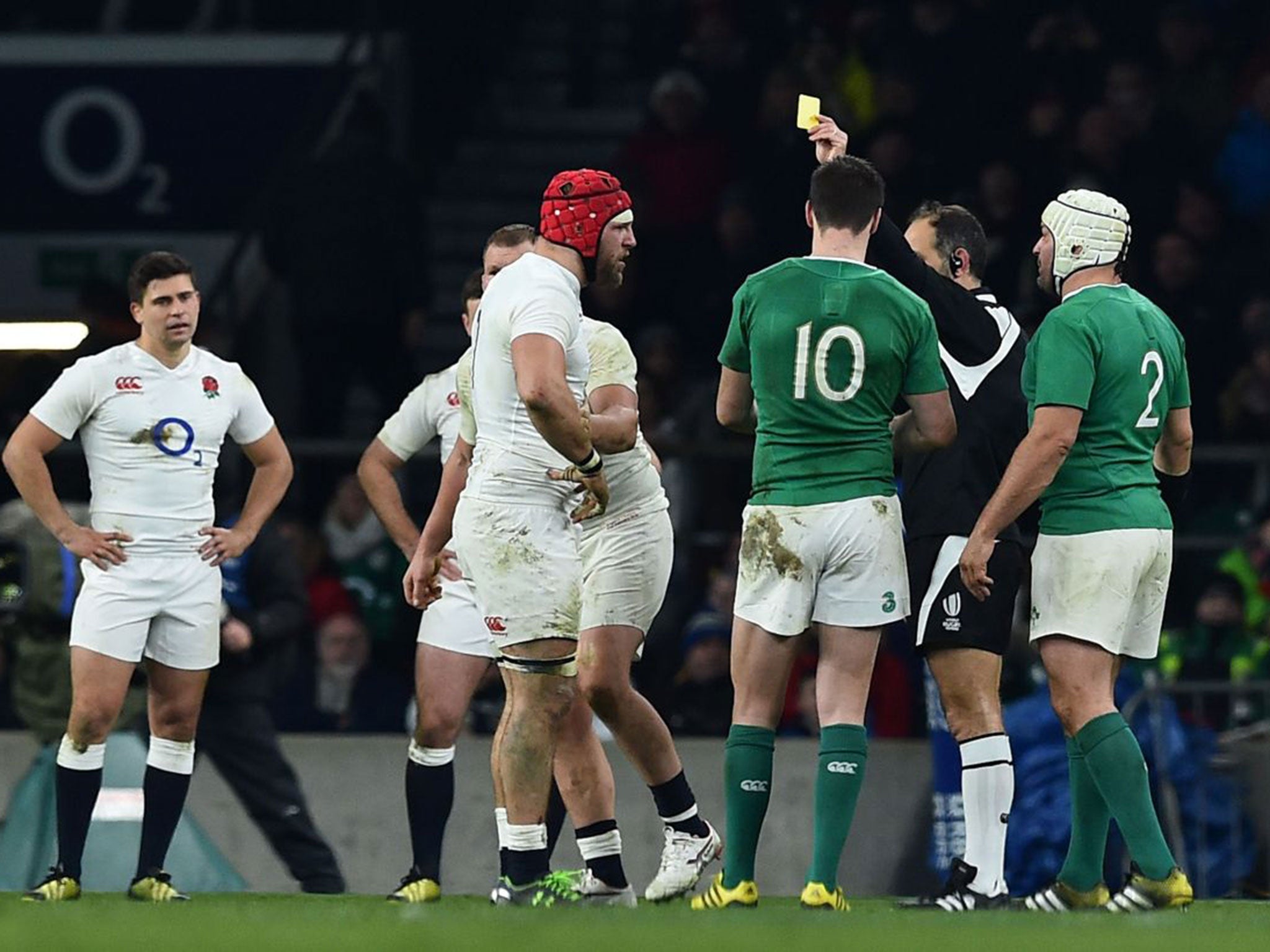Six Nations 2016: James Haskell pleads for an end to 'slo-mo circus' over tackles
‘Take the crowd out of the equation and watch replays in real time,’ urges England flanker

The two issues burning their way through the union game at forest-fire temperatures – the risk to life and limb posed by increasingly heavy tackling, illegal or otherwise, and the distorting effect of slow-motion technology on major matches – were brought together as one yesterday by the England flanker James Haskell, just about the only current red-rose player prepared to put his head above the parapet and speak candidly in public.
Haskell broke the silence, depressing rather than eerie, that has descended over the England squad ahead of this weekend’s top-of-the-bill Six Nations meeting with Wales at Twickenham by pleading for a rethink of the protocols relating to television referrals and the use of big-screen replays. And while the Wasps captain has a view on most things under the sun, this subject was unusually close to his heart.
When England played Ireland in the last round of championship matches, Haskell was sent to the sin bin by the French referee, Romain Poite, for a high hit on the Lions Test scrum-half Conor Murray – a development that left his side in a vulnerable position as a consequence. In a classic case of victim’s revenge, Murray scored the opening try of a tight encounter while his assailant was off the field.
“I was very disappointed: I didn’t think it merited a yellow card,” Haskell said between training sessions at the England base in Surrey. “I admit I went higher than usual – probably because I was on the back foot and couldn’t go for the kind of leg-height tackle I always prefer – but I actually pulled out of the contact, while Conor eased into it and got up straight away. If I’d gone through with it, there really would have been trouble.
“But more than that, I believe 100 per cent that such incidents should not be played on the big screen in slow motion. These things always look worse on slo-mo because you see the head flying back in close-up and all the rest of it. I think the crowd needs to be taken out of the equation: rather than make a huge spectacle of it, the officials should go to the side of the field and review it on their own, in real time. I don’t know who runs the system, but turning it into a circus is not constructive.”

It was difficult to argue with him. Referees are “going upstairs” with ever greater regularity, and spending increasing amounts of time viewing incidents from multiple angles – precious few of which amount to a row of beans when a player attempts to ground the ball over the goal-line amid a mass of bodies.
Two years ago, Saracens were denied a Premiership title because of two highly questionable interventions from the so-called “video ref”. As recently as last Sunday, the Exeter coach, Rob Baxter, was driven to the point of apoplexy by the confusions and iniquities of the present system.
To his immense credit, Haskell was also refreshingly honest on last week’s call by dozens of health professionals to remove tackling from the union game at school level. He argued forcefully against making rugby a compulsory activity, adding that those children who wanted to try their hand at the sport should be given proper instruction on technique in contact.
However, when he was asked whether some of the tackling in the modern game, most notably at elite level, was simply too perilous – a couple of hits perpetrated by the Leicester and England centre Manu Tuilagi last weekend, both judged to be legal, were introduced as Exhibits A and B – he made a strong defence of his red-rose colleague.
“Manu absolutely folded one bloke, who ended up like a deckchair,” Haskell said, indicating that he would have taken considerable pride in levelling an opponent in so comprehensive a fashion. “Rugby is a contact sport, a tough sport, and people do get hurt. It happens. As long as people aren’t running around straight-arming and blind-siding players, it’s part of the game.”
Which led neatly back to that yellow-card tackle on Murray. Would Haskell be treading more carefully in what is certain to be a furious encounter with the Welsh? “The important thing is to stay on the field,” he replied. “Did I make a note after Ireland to give my tackling more consideration, to adjust my height going into contact? That’s what I took away from the game. I don’t want to do things that put the team under pressure.”
England confirmed that Joe Launchbury, the Wasps lock who missed the Ireland match because of hamstring trouble, had returned to full training after sitting out much of last week’s preparatory work in Bath. A final decision between Launchbury and the young Saracens forward Maro Itoje will be made tomorrow.
Join our commenting forum
Join thought-provoking conversations, follow other Independent readers and see their replies
Comments
Bookmark popover
Removed from bookmarks